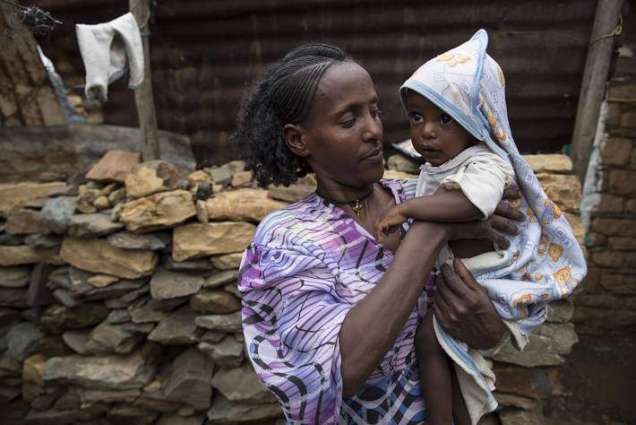The economic effects of the coronavirus lockdown, coupled with drought, have exacerbated food insecurity in southern Africa and put millions of children at greater risk of acute malnutrition and stunting, Dr. Coenie Louw, the founder of the Gateway Health Institute, a leading charity organization in South Africa, has told Sputnik in an interview
MOSCOW (Pakistan Point News / Sputnik - 04th June, 2020) The economic effects of the coronavirus lockdown, coupled with drought, have exacerbated food insecurity in southern Africa and put millions of children at greater risk of acute malnutrition and stunting, Dr. Coenie Louw, the founder of the Gateway Health Institute, a leading charity organization in South Africa, has told Sputnik in an interview.
According to Louw, food insecurity was acute for East and Southern Africa well before the pandemic, as climate change effects, like prolonged drought and recent cyclones, "destroyed many, many hectares of arable land." The coronavirus crisis is only worsening the situation. In South Africa alone, about 4 million people lost their jobs because many businesses closed, failing to "survive" the weeks of lockdown, the doctor explained.
As a result, a lot of people must now rely on scarce free food parcels, distributed by the government and NGOs. The risks are especially high for children.
"In terms of children in South Africa even before COVID-19 there were millions of kids that were hungry every day, and this is now just worse. Our big concern in South Africa and also in Africa is that those children who were already moderately malnourished will now progress to severe acute malnutrition. And that becomes deadly ... COVID-19 is not the most dangerous thing for children, hunger is," Louw warned.
Hunger and malnutrition exacerbate the problem of stunting, which may become "the biggest issue in South Africa" after the coronavirus crisis, according to the charity's head.
"Stunting is an indicator of children's nutrition. It increased from 21% in 2008 to 27% in 2016, which means that more than a quarter of our children is already malnourished. And if you take into account the number of people who are now losing their jobs and businesses closing down the figure is definitely going to double by September," Louw said.
The doctor believes that the government was "too slow" to launch its food relief program, highly underestimating the number of those in need.
"They say they distributed a quarter of a million food parcels. A quarter of a million food parcels is one out of a thirteen million food parcels that we need. We need millions of food parcels, not only 250,000. There are videos of people standing on long queues to get food parcels. It's a real crisis," Louw argued.
Another problem with the government's food parcels, he went on, is that it only provides for one meal a day and only 60 percent of the nutrients necessary for children, while small children need at least two meals a day and more nutritious food.
"Our government's main commission was to make sure our health systems don't get overrun [by COVID-19]; I think we still have a big chance of our health system being overrun because at the moment our cases are going up by about 2,000 a day. We need to make sure that we don't lose more people to hunger than to virus," the NGO founder warned.
The problem, however, is not unique to South Africa. The situation with food security is even worse in other countries in the region.
"This situation, whether it's South Africa specific or Africa specific goes across borders; this is not something that affects South Africa, it will definitely affect our neighbors, and even more so in countries like Mozambique and Zimbabwe where hunger was a bigger problem than in our country," Louw said.
To curb the virus, South Africa imposed a lockdown, one of the most stringent in the region, in late March. On Monday, the authorities loosened the restrictions, allowing businesses to reopen and people to go back to work. As of Wednesday, the country, which accounts for most of COVID-19 cases in the region, updated its tally by 1,713 to 37,525. The death toll has reached 792. The record daily increase of 1,837 cases was recorded in late May.
Though Africa so far remains the least affected region in terms of COVID-19 cases, the World Health Organization and other UN agencies warn that common diseases and food crises threaten to kill more people on the continent than the novel coronavirus itself, if wider socio-economic problems are neglected.




